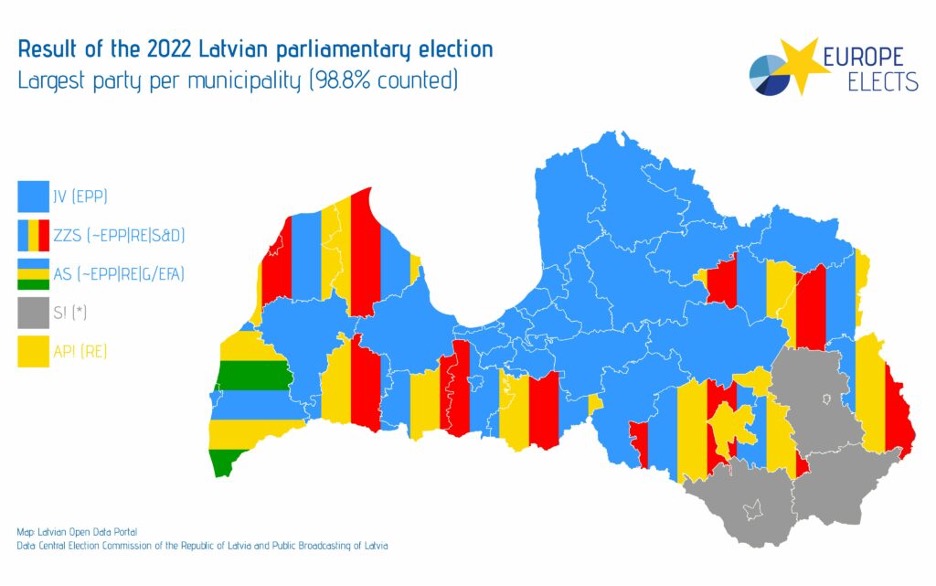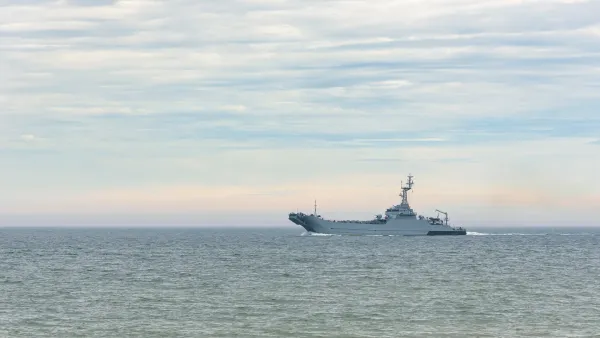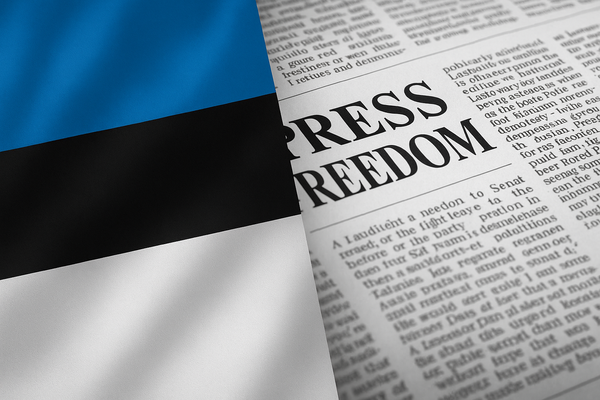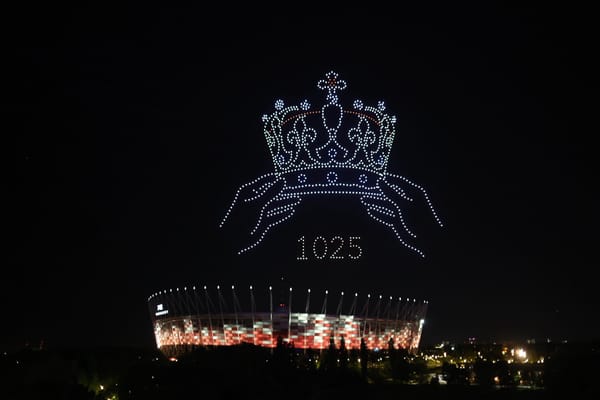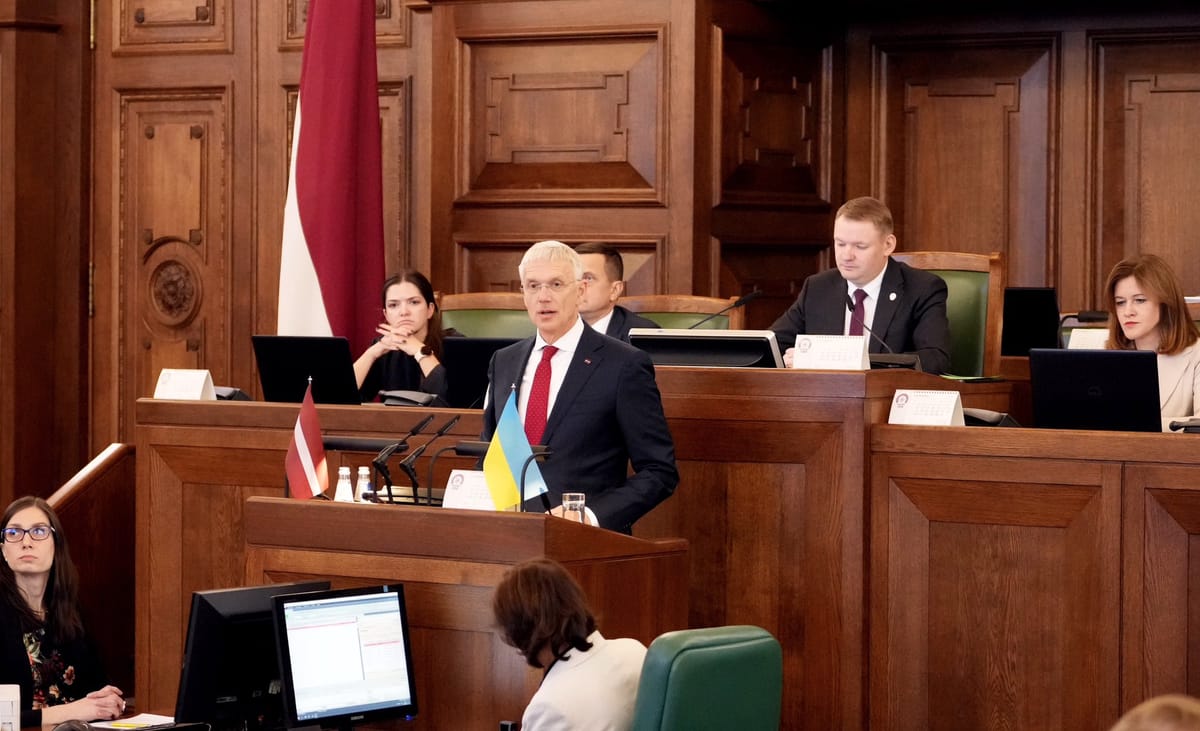
New Latvian coalition focuses on economy, security
The centre-right New Unity party, led by Latvian Prime Minister Krisjanis Karins, finalised a coalition deal with the new centrist electoral alliance United List and the conservative populist National Alliance, on Wednesday, 14 December.
The parties will hold 54 of the 100 seats in the seven-party Saeima, which voted 54-37 in favour of the coalition agreement.
The agreement comes just over two months after the national elections, held at the beginning of October, in which New Unity was the clear winner, gaining 19% of the vote.
The parties on Wednesday said in a joint declaration that the five priorities of the second Karin administration will be national security, energy, education, quality of life and competitiveness.
Karina focuses on security, economy
The US-born Karins is a long-time Kremlin critic and this year formed an anti-Russia alliance with neighbours Estonia and Lithuania, all of which border Russia and also joined NATO and the EU in 2004.
Addressing the Saeima, Karins underlined the priorities of the next government’s work regarding a transformation of the country’s economy.
He tweeted that “Russia’s brutal war in Ukraine has changed the security in Europe and the economy in the world – the prices of energy resources have risen sharply, which in turn has caused an increase in inflation, as a result of which we are experiencing a slowdown in economic growth.
“We can describe these conditions as a crisis and, as is well known, any crisis is also an opportunity. An opportunity to reassess what has been done so far and what would need to be changed to make our lives better after the crisis.”
Karins’ New Unity party will hold seven cabinet posts in the new administration, including prime minister, foreign minister and finance minister.
The junior coalition parties will each provide four ministers, including defence and economy for the National Alliance, and the Interior and Agriculture portfolios for the United List.
According to Karins, who has served as premier since 2019, a “broad transformation of the economy can be achieved on condition that we focus on working together for one goal, for the benefit of the people of our country”.
Election saw Latvia pivot away from Russia
Along with the country’s economic difficulties, the campaign in early October focussed on Russia policy, in the wake of Russia’s invasion of Ukraine on 24 February.
After all the votes were in, none of Latvia’s Russian minority parties had reached the five-percent threshold to enter Parliament.
The Russian-minority Harmony party, the biggest political party in 2018 that represents Estonian ethnic Russians as well as the Belarusian and Ukrainian community, as it Harmony received only 4.8% of the votes, less than a quarter of the vote four years earlier.
The Greens and Farmers Union came second with 12.5%, while the new electoral alliance of centrist regional parties United List was placed third, with 10.9%.
